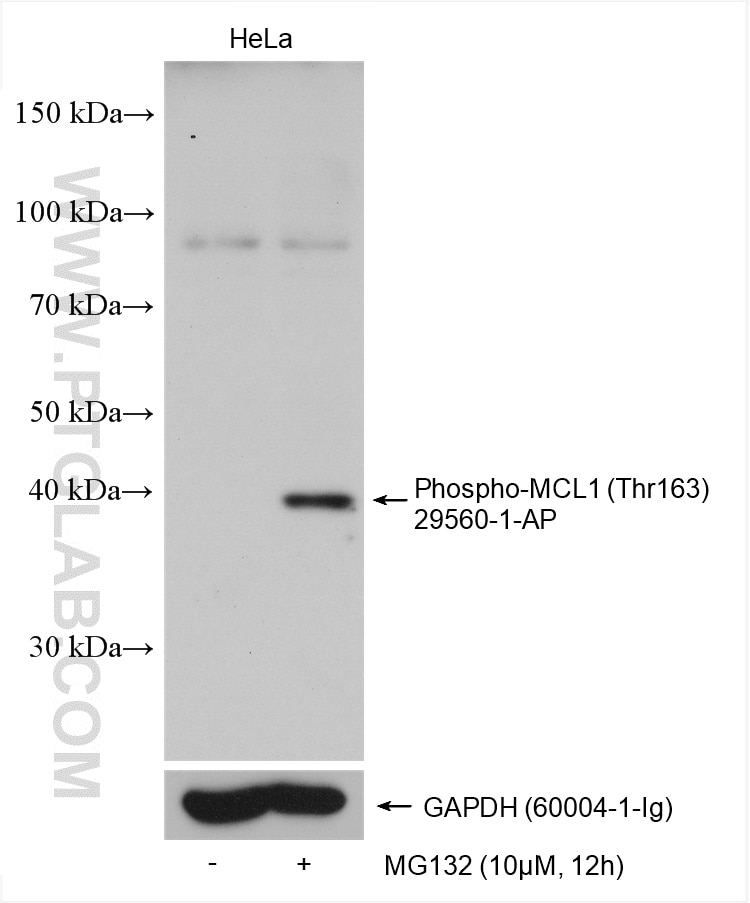Tested Applications
| Positive WB detected in | MG132 treated HeLa cells |
Recommended dilution
| Application | Dilution |
|---|---|
| Western Blot (WB) | WB : 1:500-1:2000 |
| It is recommended that this reagent should be titrated in each testing system to obtain optimal results. | |
| Sample-dependent, Check data in validation data gallery. | |
Product Information
29560-1-AP targets Phospho-MCL1 (Thr163) in WB, ELISA applications and shows reactivity with Human samples.
| Tested Reactivity | Human |
| Host / Isotype | Rabbit / IgG |
| Class | Polyclonal |
| Type | Antibody |
| Immunogen |
Peptide Predict reactive species |
| Full Name | myeloid cell leukemia sequence 1 (BCL2-related) |
| Calculated Molecular Weight | 350 aa, 37 kDa |
| Observed Molecular Weight | 40 kDa |
| GenBank Accession Number | BC017197 |
| Gene Symbol | MCL1 |
| Gene ID (NCBI) | 4170 |
| RRID | AB_2935417 |
| Conjugate | Unconjugated |
| Form | Liquid |
| Purification Method | Antigen affinity purification |
| UNIPROT ID | Q07820 |
| Storage Buffer | PBS with 0.02% sodium azide and 50% glycerol, pH 7.3. |
| Storage Conditions | Store at -20°C. Stable for one year after shipment. Aliquoting is unnecessary for -20oC storage. 20ul sizes contain 0.1% BSA. |
Background Information
MCL1 is an anti-apoptotic member of the BCL-2 family originally isolated from the ML-1 human myeloid leukemia cell line. Similar to BCL2 and BCL2L1, MCL1 can interact with BAX and/or BAK1 to inhibit mitochondria-mediated apoptosis. Recent studies show that MCL1 is upregulated in numerous hematological and solid tumor malignancies. Therefore, MCL1 has been suggested as a potential new therapeutic target. MCL1 can be phosphorylated by several protein kinases which enables the recognition of MCL1 by its E3 ubiquitin-ligases TrCP or FBW7 (PMID: 33308268). MCL1 shows higher stability when phosphorylated on threonine 163 (PMID: 16543145).
Protocols
| Product Specific Protocols | |
|---|---|
| WB protocol for Phospho-MCL1 (Thr163) antibody 29560-1-AP | Download protocol |
| Standard Protocols | |
|---|---|
| Click here to view our Standard Protocols |




